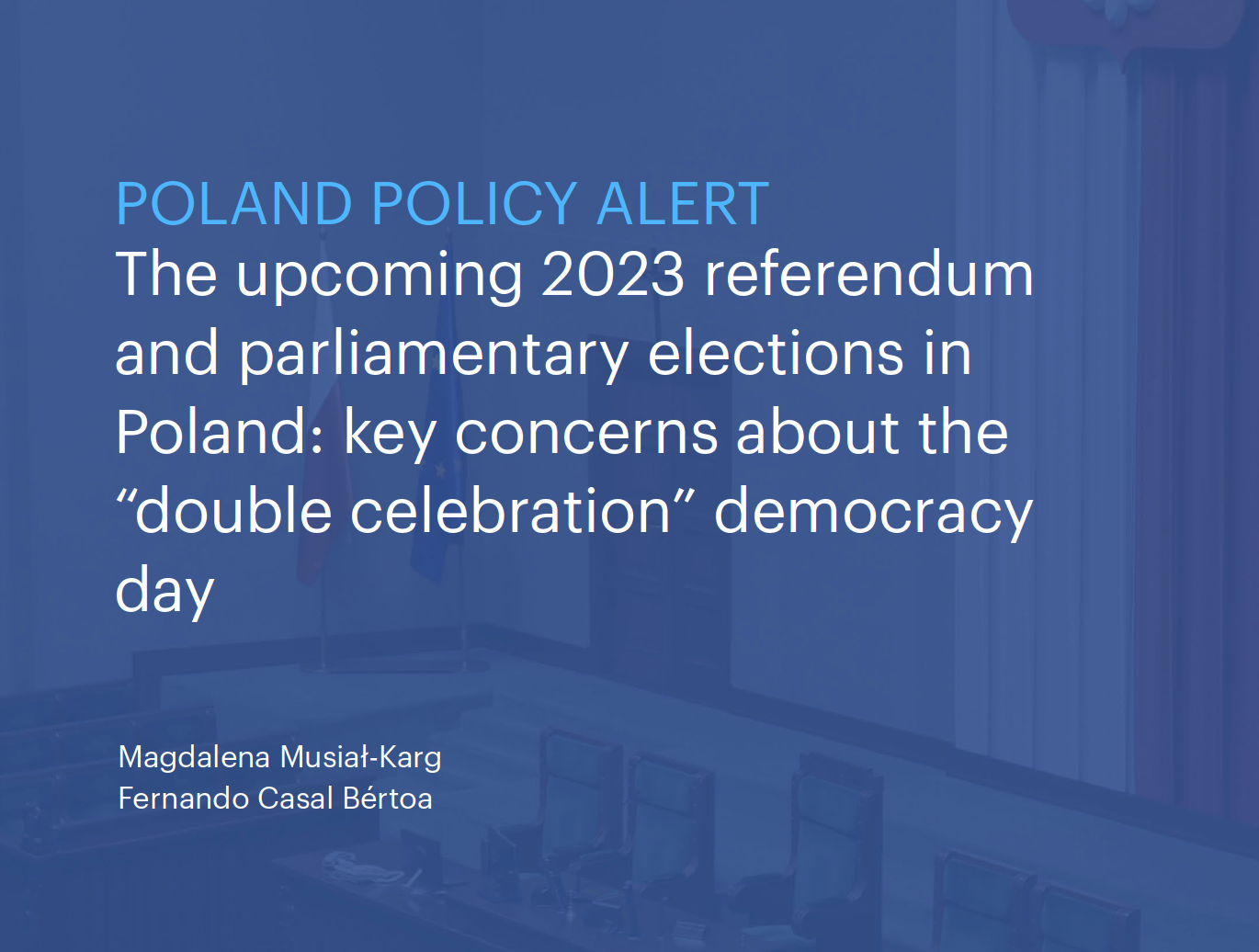
The recently published Policy Alert voices concern about the decision of the Polish government to hold a national referendum alongside the elections for Sejm and Senat, citing the short time for public debate, the wording of questions of the referendum, its binding effect, campaign finance rules, and general organizational issues. The authors propose several recommendations to address these concerns.
By Magdalena Musiał-Karg and Fernando Casal Bértoa.
On 8 August 2023, Polish President Andrzej Duda scheduled the next parliamentary elections for October 15th, 2023. Arguing its intention to minimize costs, the Polish government decided to hold a national referendum alongside parliamentary (both Sejm and Senat) elections.
To this end, an amendment to the Referendum Act was adopted on July 7th. By harmonizing the voting times (i.e., from 7 a.m. to 9 p.m.), both votes will be held completely in a simultaneous manner for the first time. The Sejm adopted the resolution to hold a nationwide referendum by an absolute majority of 226 votes (with 210 against and 7 abstentions) on August 17th.
The referendum campaign began on the day the Sejm announced the adoption of the referendum resolution (i.e., August 18th) and it will end 24 hours before voting day. Coinciding with the election silence, the referendum blackout period will start on Friday (October 13th) at midnight, and will last until the end of the voting.
The idea of holding a referendum and a parliamentary election on the same day is a controversial initiative of the ruling party (Law and Justice) and has met with unequivocal rejection from all opposition parties. Many electoral experts have expressed their criticism of what they see as an explicitly partisan use of one of the most important consultation mechanisms that democracy has.
The timing of the referendum clearly violates the principle of vacatio legis (i.e. the obligation to leave 14 days between the publication of a legal act and its entry into force).
The wording of the referendum’s questions have been formulated in an ambiguous manner, which influences the perception of voters and manipulates the voters’ decision.
The binding effect of the referendum and the lack of planned policy announcements by the government makes it hard for the voter to predict how the government aims to deliver on the referendum’s results.
The vague wording of the constitution regarding the legal basis for referendums for “matters of particular importance to the state” allows those in power to determine what is considered “particular important”.
As the same district election commission will conduct the voting at the same polling stations using the same ballot box, refusal to accept a referendum ballot will be noted by the election committee in the register of voters. As voters of oppositional parties are likely to refuse participation in the referendum, this can potentially reveal voting preferences and compromise the secrecy of the vote.
As the provisions of the electoral law on spending limits and campaign finance reporting do not apply to referendums, and it will be almost impossible to distinguish between referendum and general election spending, unlimited and uncontrolled campaign spending seems inevitable.
Subscribe to our
newsletter
Sign up for our monthly newsletter
and receive the latest EPDE news
Sign up for our monthly newsletter and receive the latest EPDE news
Subscribe to our
newsletter
Sign up for our monthly newsletter
and receive the latest EPDE news
Subscribe to our
newsletter
Sign up for our monthly newsletter and receive the latest EPDE news